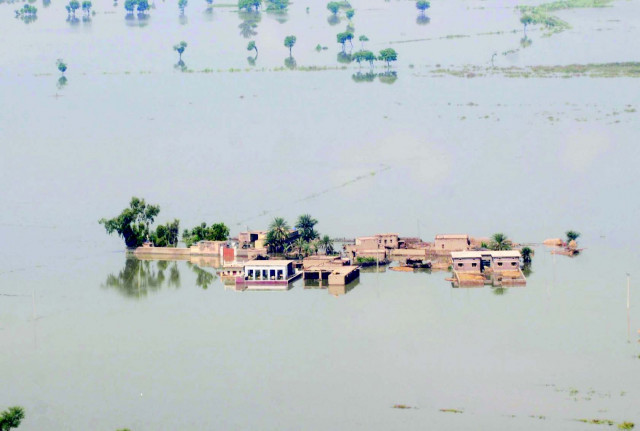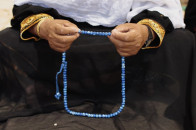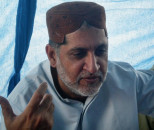‘We haven’t even begun to understand what hit us’
It is not clear how long individual efforts will be able to keep up with the needs of the flood survivors.

“The people are in total shock. I’m worried about the time when they emerge from this to actually realise that they’ve lost everything, their grain, their livestock… They have nothing to go back to. And now their children are starving and dying in front of their eyes.”
Khan and his wife have been working on aid. The company plans to spend Rs10 million and is distributing 20 deghs of food each day. “But I’m not giving any money to the politicians,” he said. “We’re doing it directly with the people so we know at least that it’s reaching the right ones.” One of his factory managers went to meet the corps commander, who has contacted all the businesses in the area for donations to the army. “And we’re only going to give them biscuits,” said Khan. “No money.”
It is not clear, however, how long individual efforts will be able to keep up with the needs of the flood survivors. “Nature has its way of bringing relief,” said Khan, a little ominously. He uses words like “anarchy” and “revolt”, glimpses of which have started to surface in Sukkur. “What will people have to lose,” he asks. “If their children are sick and dying… what parent can bear that?”
It seems, however, that the government and elected representatives are getting their act together. A young man who set up a camp said that he was gradually going to hand it over to the government. Officials came by and asked him what else they needed. He said that hand pumps would help provide a steady stream of clean water. Other officials came and made cards for the heads of the families so that they can receive rations.
The government is, however, cognisant of the fact that there is a risk of Cholera, dysentery, gastroenteritis. But it is not clear if doctors have started heading towards the flood-hit areas in the numbers that are required.
The government wasn’t prepared for the flooding that hit but now people are worried that they are not prepared for the disease outbreaks. The Express Tribune contacted Dr Liaquat Bhutto, who is the director of the federally managed Central Health Establishment. “If there is an outbreak, we will be there to provide,” he said. He did not otherwise detail any plan for Sindh and indicated that most of the work was being done by the provincial governments. When asked about a budget, he said he couldn’t comment.
It was the people themselves who first responded to the flooding. “The politicians roll up in their Prados in their starched white shalwar kameezes,” said Brigadier (retd) Nisar Maher, who went to his village on the outskirts of Sukkur. “At a time like this, they’ve got spotless clothes. Someone should ask if they’ve done anything.”
Indeed, there is a big question mark over the performance of the elected representatives. And the people will be watching closely. The Continental Biscuit factory has a famous resthouse in Sukkur that is packed with foreign journalists, representatives from the World Food Programme, Unicef, the UN. “I haven’t given a single room to any politicians, any of those bekar, faltoo people,” said Hasan Ali Khan with barely concealed disdain.
It seems as if the government is aware of this sentiment, for the DCO of Sukkur has urged people to work directly with the flood survivors so that there are no doubts about transparency. “Just do whatever you can,” Hasan quoted him as saying.
Published in The Express Tribune, August 18th, 2010.



















COMMENTS
Comments are moderated and generally will be posted if they are on-topic and not abusive.
For more information, please see our Comments FAQ